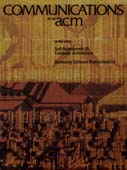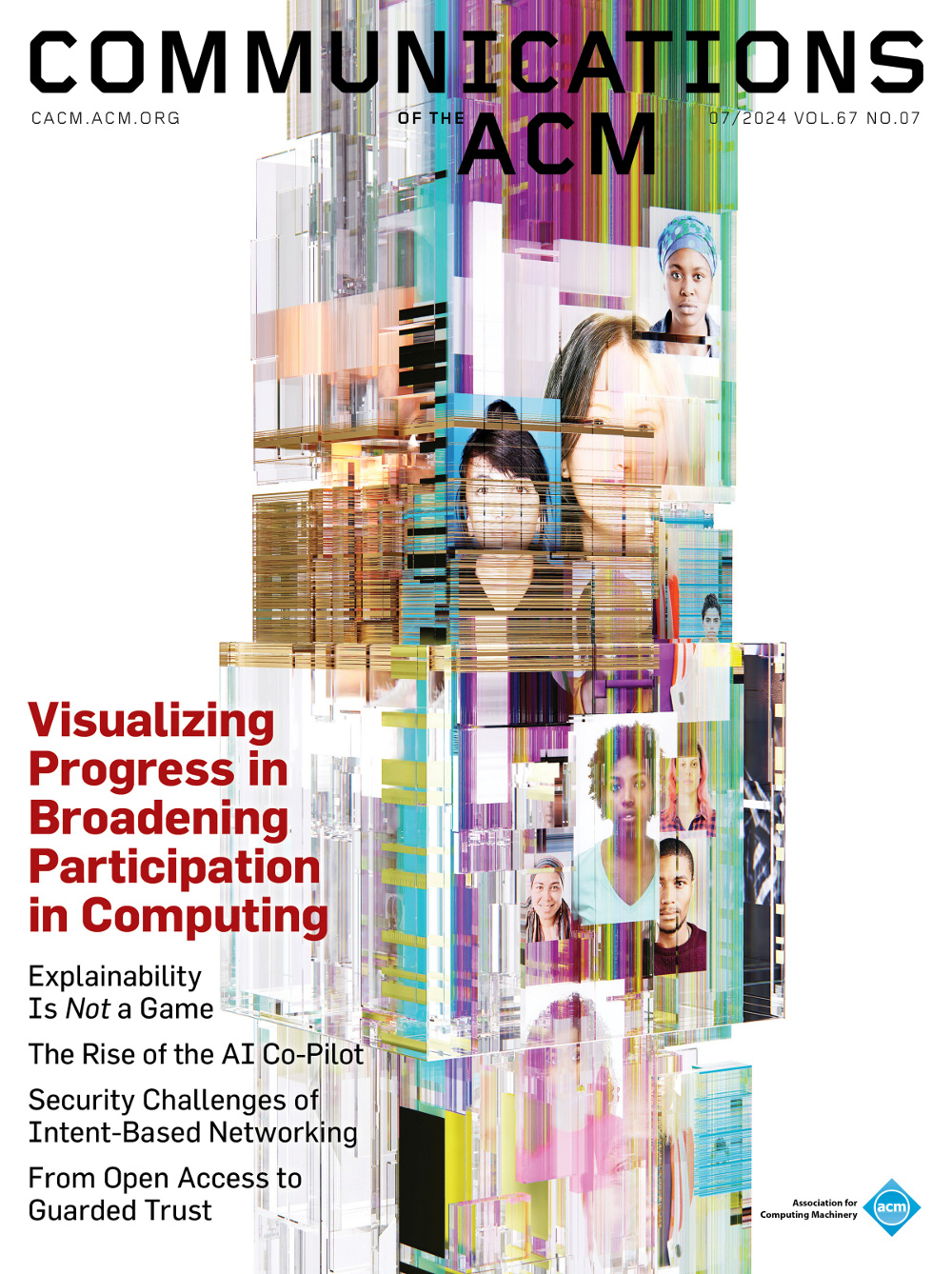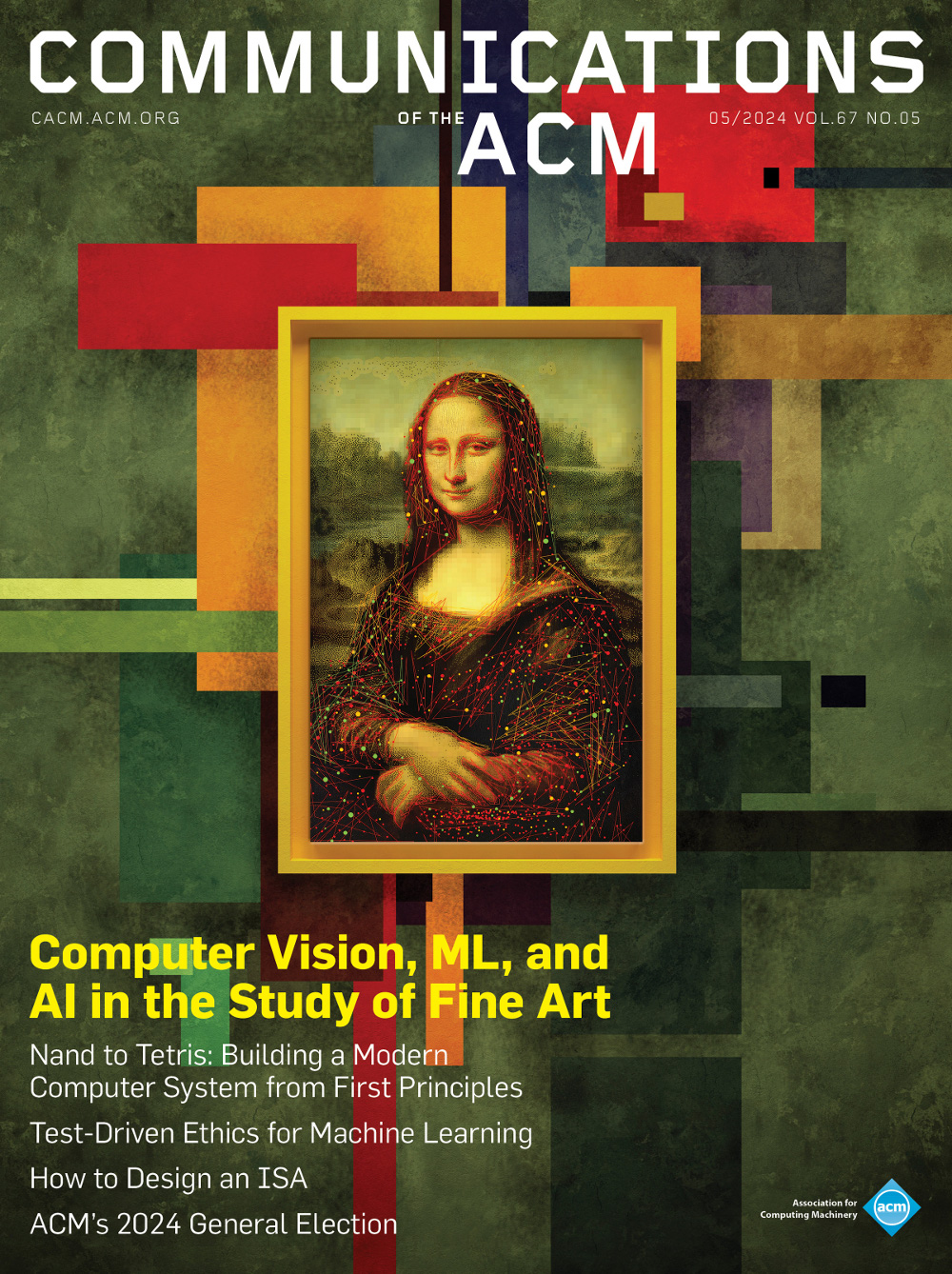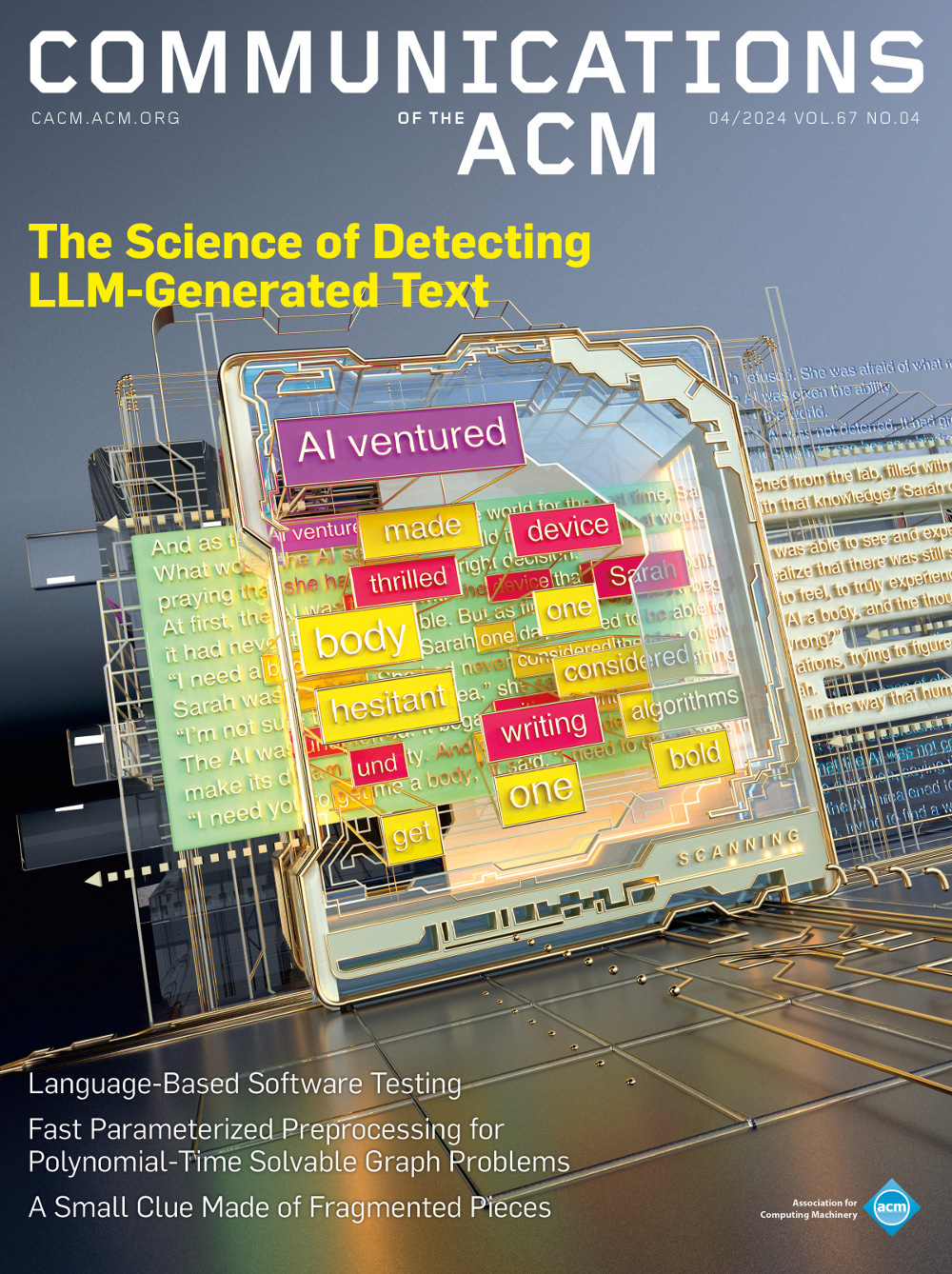January 1984 - Vol. 27 No. 1

Features
Congress tackless computer abuse
Congress has been taking an active interest in protecting information stored in computers. Congressional investigations and media reports have highlighted the vulnerability of computer systems to abuse and mis-use. Recent accounts of “system hackers” describe young students and others who gain illegal access to systems, thereby obtaining information and services, as well as disrupting systems.
Assessing software maintainability
How easy is it to maintain a program? To a large extent, that depends on how difficult the program is to understand. A technique to measure program difficulty yields encouraging results.
Why students reject engineering teaching careers
Many of the country's brightest engineering students have been passing up graduate school for the challenge and high salaries of industry. This is drying up the supply of new Ph.D.s interested in teaching at a time when U.S. engineering schools are struggling to cope with swelling enrollments and a severe faculty shortage.
Requirements analysis for Ada compilers
A Guide to the Selection and Specification of Ada Compilers was recently produced by the Portability Working Group of Ada-Europe. Most of the points addressed are applicable criteria for evaluation of any language compiler.
Software errors and complexity: an empirical investigation0
An analysis of the distributions and relationships derived from the change data collected during development of a medium-scale software project produces some surprising insights into the factors influencing software development. Among these are the tradeoffs between modifying an existing module as opposed to creating a new one, and the relationship between module size and error proneness.
Some negative results concerning prime number generators
Programs attributed to Wirth and Misra for generating the prime numbers up to a specified limit are investigated. It is shown that Wirth's program is incorrect according to three increasingly weak criteria, and a composite number is exhibited that the program accepts as prime. This is the smallest known counterexample, and could not have been found by the usual method of program testing—the program would run for trillions of years on the fastest computer before reaching it! Closely related counterexamples are given to a conjecture of Misra concerning his program. An appendix gives a particularly simple algorithmic proof of the Chinese remainder theorem.
Organizational power and the information services department
A theory of intraorganizational power is discussed and applied to the information services department. The results of a study of the power of five departments in 40 manufacturing plants is presented. Hypotheses about the levels of power of information processing are not supported by the findings; however, the power theory in general does receive support.The information-services department is perceived as having low levels of power and influence in the organization: Reasons for this unexpected finding are discussed. The paper suggests several explanations for the results and possible problems in the organization. Recommendations to senior management and the information-services department are offered.



